INTRODUCTION:
I actually very much wanted something that have like an autumn leaves like features, very similar like the maple leaf in burgundy coloration but I know that those are very much temperate garden plants and may not even able to survive in the constant rain and shine in this tropical region.
However, just like some plants which have very strong similarities, I find that these Cranberry Hibiscus plant just might do that trick. Though this particular plant is very much cultivated as an edible plant - I find these unique leaf pattern and colors are very well defined to cultivate as an ornament plant in my garden.
PLANT CHARACTERISTICS:
Commonly also known as Hibiscus acetosella, African rosemallow, false roselle, maroon mallow, red leaved hibiscus, and red shield hibiscus. It appears to have approximately over 200-300 different species of this type - however this particular type appears to be very popular here and been in cultivation around this region for many years. It has been said that this plant is also cold hardy and thus cultivated as ornament plant in temperate regions.
PLANT CARE:
Personally I find this particular plant is very hardy, practically there is no care needed - occasionally I would prune them as I find they tend to grow in many directions, hence keeping them neat makes a lot easier in cultivating this plant in the garden.
This one behaves like a perennial plant - hence they last longer - also I have noticed that it only grows as a single plant from the stem branch, hence keeping spares as plant cuttings would help as a back up plant in case the singular plant matures and dies.
LIGHT
It does require a lot of sunlight to maintain the burgundy coloration - planted anywhere in the shaded area, it appears to become leggy and almost green, at times I noticed it grew for few weeks and suddenly withers and dies. Hence, I would not recommend this to be grown as an indoor garden plant.
WATERING
I must say that this also happens to be a thirsty plant, lacking water, they appear to be withering due to over expose to direct sun, once watered immediately, they jump back rejuvenated and in healthy appearance. Daily watering is a must, even at least once a day.
SOIL MEDIUM
I had found that this is not a fussy plant and does well in any soil condition, however when planted in a balanced potting medium, these thrive without any problem. Once the plant established itself in a good growth size - there is nothing much to worry about except for daily watering and occasional pruning.
FLOWERS
Here is how the flowers looks like, the blooms appears to be very brilliant in crimson colors, almost too bright competing against its own foliage. These do tend to form fruit and seeds - however, due to the lack of fertilizer, which I rarely use here, they seemed to rarely bloom.
PEST
Occasionally I had come across mealybugs infested on them farmed by ants years ago on which I was very much faithfully following up the pest control regime on them to eradicate these from the garden. It is not fully successful but shown much greater improvement in comparison to what it appears to be years ago.
EDIBLE USES:
Its known as Cranberry Hibiscus due the flavors and coloring that is similar like a cranberry. It been said that it had a rich source of Vitamin C, B3, B2, iron and calcium.
Often the leaves and the flowers are boiled and consumed as tea. However the raw leaves contains oxalic acid, hence it is better to consumed them as cooked rather than salad.
There are indeed few recipes that you can find in the internet and figure out what works best for you if you are cultivating an edible garden. I must say, if you are a new beginner - do cultivate this particular one as it is truly a hardy plant.


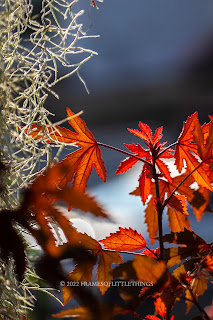




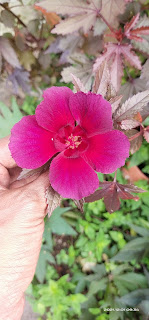
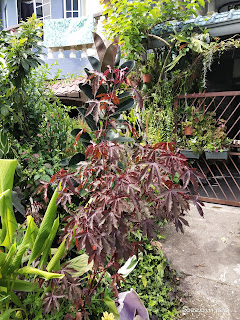
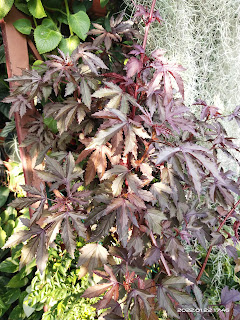
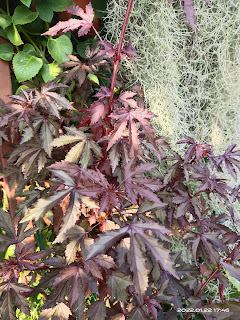
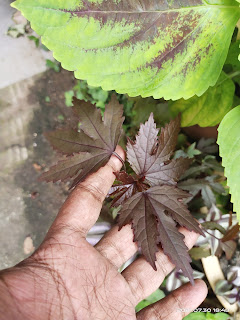

















No comments:
Post a Comment